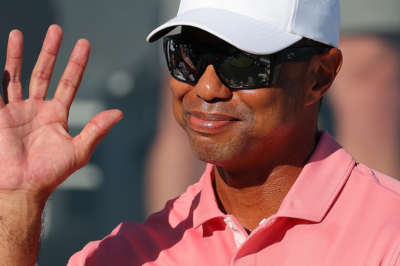The Legacy of Michael Jackson: The Unwavering Title of “King of Pop”

Michael Jackson, often referred to as the “King of Pop,” remains one of the most iconic figures in the history of music. His unparalleled influence, groundbreaking artistry, and global impact have solidified his position as a cultural phenomenon. Recently, discussions surrounding the potential for other artists, such as Harry Styles, to inherit this prestigious title have sparked debates among fans and industry insiders. However, for many, including members of Jackson’s own family, the notion of replacing him as the “King of Pop” is inconceivable.
Taj Jackson, Michael Jackson’s nephew, publicly addressed this topic on social media. In a firm statement shared on X (formerly Twitter), Taj expressed his disapproval of any attempt to dethrone his uncle’s legacy. “There is no new King of Pop. You don’t deserve it, my uncle does,” he wrote. Taj’s sentiment reflects the deep reverence and loyalty many feel toward Michael Jackson’s contributions to music and culture.
Michael Jackson earned the title “King of Pop” not through a fleeting moment of success but through decades of groundbreaking work that redefined the music industry. His albums, such as *Thriller*, *Bad*, and *Off the Wall*, remain among the best-selling records of all time. The *Thriller* album alone has sold over 70 million copies worldwide and continues to influence artists across generations. Jackson’s innovative approach to music videos, such as the cinematic masterpiece “Thriller,” revolutionized the medium and elevated it to an art form.
Beyond his commercial achievements, Jackson’s artistry was characterized by his ability to connect with audiences on a profound emotional level. His songs often carried universal themes of love, unity, and social change, resonating with people from all walks of life. Tracks like “Man in the Mirror,” “Heal the World,” and “Black or White” showcased his commitment to addressing societal issues and promoting a message of hope and inclusivity.
While Harry Styles is undoubtedly a talented artist who has made significant strides in his career, comparing him to Michael Jackson presents a challenge. Styles has cultivated a unique identity within the music industry, blending pop, rock, and indie influences into his work. His charismatic performances and fashion-forward persona have garnered him a devoted fan base. However, the sheer magnitude of Jackson’s impact—both musically and culturally—sets a precedent that is difficult to match.
The designation of “King of Pop” carries more than just recognition for commercial success; it embodies an artist’s ability to define an era, transform an industry, and leave an indelible mark on global culture. Michael Jackson’s contributions to music, dance, fashion, and philanthropy are unparalleled. His influence transcends generations, with younger audiences continuing to discover and appreciate his work long after his passing.
It is important to note that the music industry evolves over time, and new artists will inevitably make their mark on the world stage. However, this evolution does not necessitate replacing or redefining established titles such as the “King of Pop.” Instead, it allows for the celebration of diverse talents and contributions without diminishing the legacies of those who came before.
For many fans and admirers, Michael Jackson’s title as the “King of Pop” is not merely an honorific; it is a testament to his enduring legacy. Attempts to assign this title to others may inadvertently undermine the significance of what Jackson achieved during his lifetime. As Taj Jackson eloquently stated, “There is no new King of Pop.” This sentiment reflects the belief that some legacies are so monumental that they remain unmatched.
In conclusion, while Harry Styles and other contemporary artists continue to shape the music landscape in their own unique ways, Michael Jackson’s position as the “King of Pop” remains unshaken. His contributions to music and culture are timeless, serving as an inspiration for generations to come. Rather than seeking to replace or replicate his legacy, the focus should be on honoring his achievements while celebrating the diversity and creativity of today’s artists. The “King of Pop” crown belongs solely to Michael Jackson—a title earned through extraordinary talent, dedication, and an unparalleled connection with audiences worldwide.
News
Elon Musk responds to a former MSNBC host calling for 2028 Democrats to prosecute him
Mehdi Hasan suggests next Democratic president should run on prosecuting Elon Musk Tesla founder Elon Musk called out former MSNBC host Mehdi…
PGA Tour will cancel another long-standing tournament that has existed for 60 years after Tiger Woods publicly announced plans for a major overhaul.
PGA Tour to Cancel Another 60-Year-Old Event After Tiger Woods Made Drastic Revamp Plans Clear – Report Hawaii has always…
Inside Tiger Woods’ lavish 50th birthday party: ‘Celebrity-packed’ guest list, red dress code and a rock icon singing
Golf legend Tiger Woods quietly turned 50 last month but it appears the real celebrations have yet to come. The 15-time major…
Tiger Woods’ veteran caddie Steve Williams on the star’s affair, the price of loyalty and how they fell apart
Veteran caddie Steve Williams reveals his humiliating split with Tiger Woods after the golf superstar’s affair was exposed – and…
Elon Musk’s transgender daughter has taken a major step in her career by collaborating with Rihanna.
Elon Musk’s transgender daughter collaborates with Rihanna. Rihanna invited Vivian Wilson, the transgender daughter of billionaire Elon Musk, to participate…
Riley Green has confessed that he had hoped all his ex-girlfriends would text him at the same time after he won the ‘sexiest man’ award… But none of them did.
Riley Green Expected All His Exes to Text Him After This Milestone — But None Did Riley Green admitted to me…
End of content
No more pages to load












